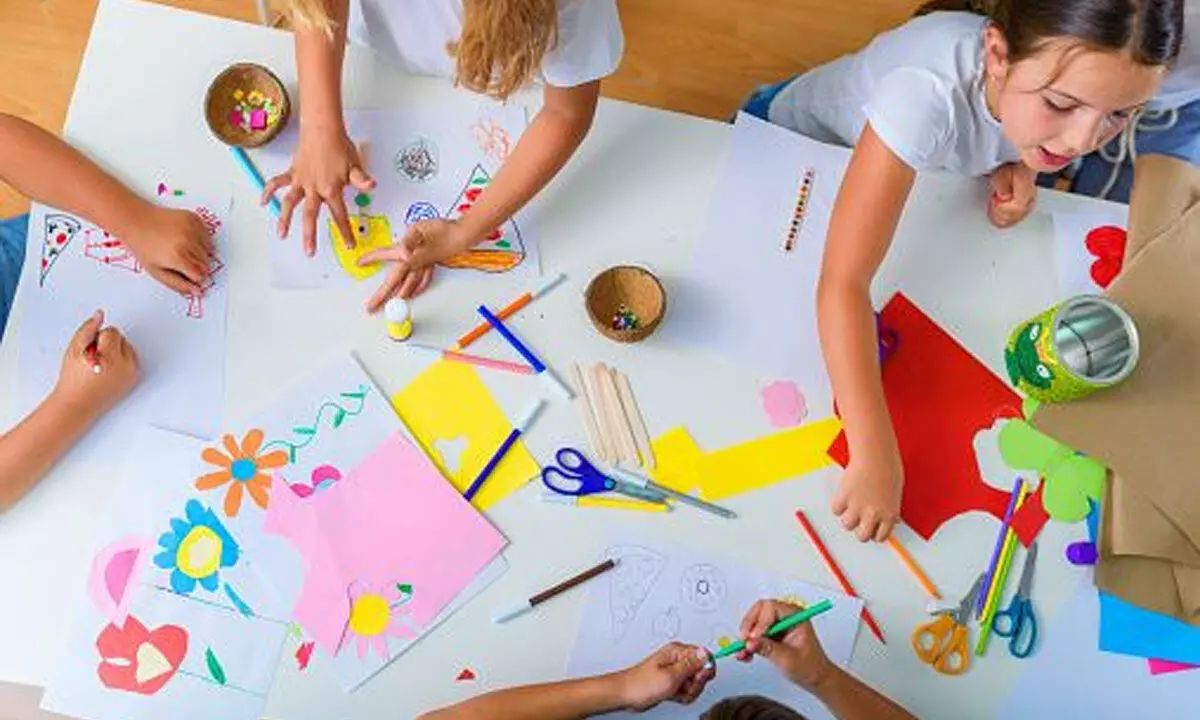5 extra-curricular activities help students become academically strong

Extracurricular activities are not mere add-ons to a student’s academic journey but integral components that enable them to reach their full potential. Encouraging active engagement in these activities fosters the development of essential life qualities, such as self-discipline, resilience, and a growth mindset
Extracurricular activities play a pivotal role in shaping the holistic development of students, offering them opportunities to explore their interests, learn new skills, and thrive outside the traditional academic setting. In this article, we delve into the profound impact of extracurricular engagement, exploring five key ways in which these activities contribute to academic prowess and foster leadership qualities.
1. Building a foundation for academic excellence
Participation in extracurricular activities extends beyond mere hobbies or sports, consistently proving to be associated with enhanced academic performance. Studies reveal that students involved in such activities develop crucial time management, self-discipline, and focus skills. These skills not only lead to improved grades but also instill an ability to effectively balance academic obligations with extracurricular commitments. Moreover, the heightened focus acquired through extracurricular activities contributes to more effective learning, enhancing students’ problem-solving and critical thinking abilities.
2. Cultivating resilience through challenges
Extracurricular activities serve as a crucible for developing resilience, a quality indispensable for navigating life’s challenges. Whether facing complex assignments, intense competition, or occasional setbacks, students glean invaluable lessons in resilience from these experiences. Overcoming obstacles, such as a failed experiment or a sports defeat, fosters problem-solving, perseverance, and adaptability. This resilience, coupled with a growth-oriented mindset, becomes a cornerstone for students to approach difficulties with optimism and view setbacks as opportunities for intellectual and personal growth.
3. Fostering comprehensive skill development
Engaging in extracurricular activities contributes significantly to a student’s overall skill set, extending well beyond conventional classroom learning. Activities such as playing a musical instrument, participating in debates, or volunteering provide unique opportunities for critical thinking and creative expression. The ability to navigate complex situations, think analytically, and solve problems is honed through tasks like mastering challenging musical pieces or planning community projects.
Additionally, self-expression in creative activities fosters unique thinking that can be applied to diverse aspects of life. Effective communication and teamwork skills developed through extracurricular engagement become invaluable assets in academic, professional, and personal contexts.
4. Enhancing social and emotional competence
Participating in extracurricular activities offers students a dynamic environment beyond the classroom, providing opportunities to interact with mentors, peers, and diverse groups. Mentors in various fields, be it music, sports, or community service, play a crucial role in guiding students toward their goals, offering insights into real-world experiences and career paths.Collaborative activities, such as sports or group projects, nurture social and emotional intelligence, emphasizing teamwork, cooperation, and shared responsibility. These experiences not only contribute to academic proficiency but also lay the groundwork for meaningful relationships, providing students with a sense of belonging and unity.
5. Preparing for leadership roles
Extracurricular activities offer students a unique platform to develop and refine critical leadership abilities. Whether leading a volunteer initiative, taking on a leadership role in a group, or captaining a sports team, these experiences allow students to hone skills that extend far beyond the classroom. Leadership roles in extracurricular activities, such as mentoring peers or organizing events, equip students with decision-making abilities, resilience, and accountability. Team captaincy in sports, in particular, provides a hands-on experience in inspiring and motivatingpeers, handling diverse personalities, and developing winning strategies.
These leadership experiences, coupled with participation in community service projects, prepare students for the challenges of future careers, emphasizing problem-solving, coordination, and communication skills.
Conclusion
In conclusion, extracurricular activities are not mere add-ons to a student’s academic journey but integral components that enable them to reach their full potential.
Encouraging active engagement in these activities fosters the development of essential life qualities, such as self-discipline, resilience, and a growth mindset. Moreover, it equips students with the skills needed for success in diverse industries, emphasizing effective communication, critical thinking, and leadership. As educators and parents, our investment in promoting extracurricular engagement reflects our commitment to nurturing competent, well-rounded individuals ready to face the challenges of the future.
(The author is Director Pastoral Care and Sports Infrastructure,Vijaybhoomi University)










